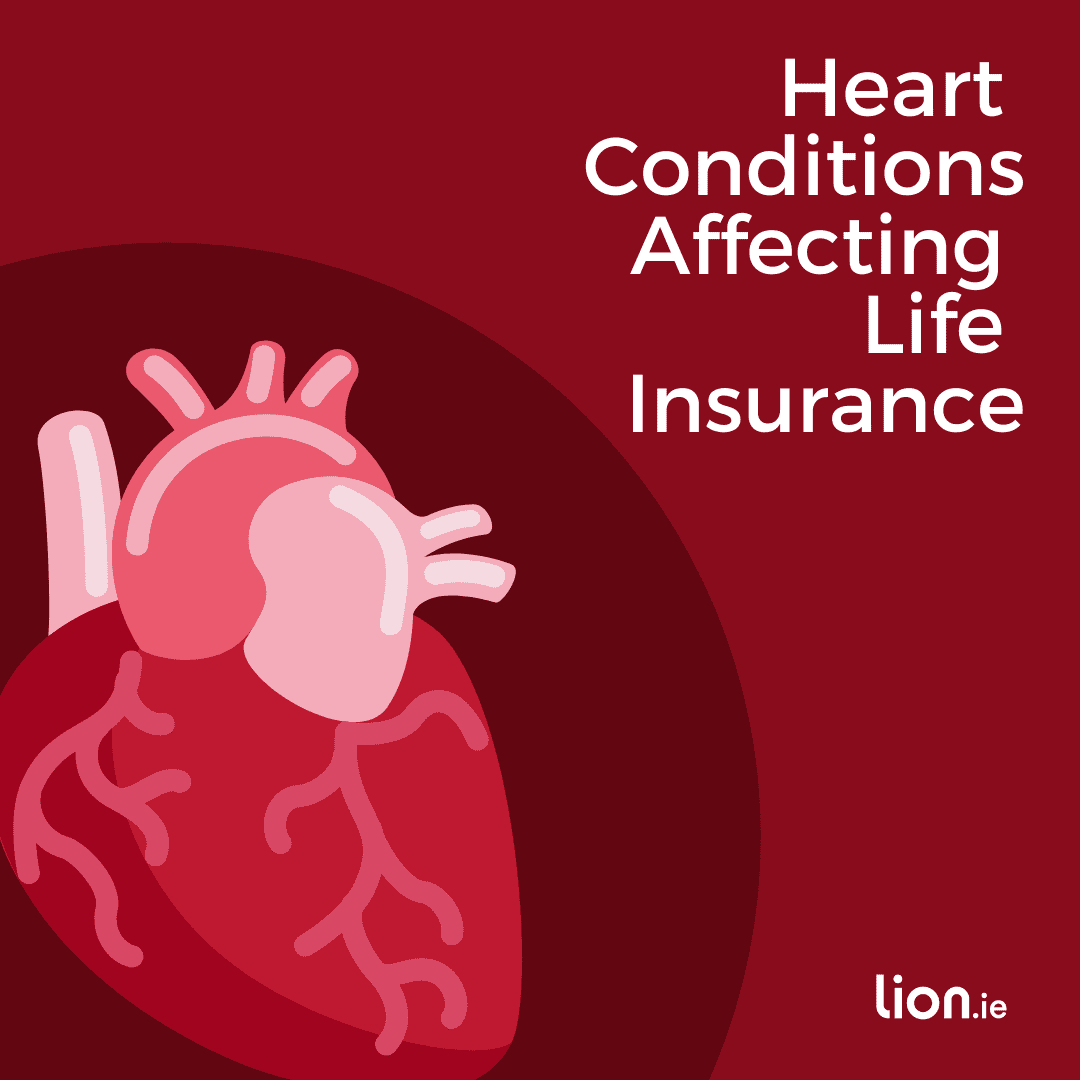Heart Conditions & Life Insurance

Complete this questionnaire and I’ll check can we get you cover and at what premium.
Can you get Life Insurance if you have a Heart Condition?
If your heart is healthy, you can fire ahead and buy life insurance, mortgage protection and income protection in a jiffy.
However, if you have a heart condition, things are not always that simple.
Not all heart conditions will prevent you from being insured, and not all insurers underwrite heart issues in the same way.
That’s why it’s important to understand what you should and shouldn’t do when purchasing life insurance if you have a heart defect.
You don’t have to read the whole article if you understand the following two points:
Don’t apply to the first insurer who flutters their eyelashes at you
Use a specialist broker who knows what they’re doing
This article will run through the Ten Most Common Heart Issues we see and how the insurance underwriters generally view these conditions.
I bolded generally as the insurers can take widely different approaches depending on the specifics of your heart condition.

1. How do Heart Murmurs Affect Life Insurance?
A heart murmur is a common sound heard between heartbeats. It results from the turbulent flow of blood through the heart and its valves. It is often (but not always) a sign of disease. Murmurs may be harmless (innocent) or abnormal.
An innocent heart murmur is a whoosing noise that happens when blood passes through a structurally normal heart. It can disappear on it’s own and causes no issue for life insurance.
However, an abnormal heart murmur can be more serious, so the possibility of getting cover will depend on the exact type of valve problem present:
Hole in the Heart
Holes in the heart are classified according to their severity:
Trivial: Normal exercise capacity and normal echocardiogram.
Mild: Normal exercise capacity with mild abnormalities on echocardiogram.
Moderate: Moderate limitation of exercise capacity with abnormalities on echocardiogram.
Severe: Severe limitation of exercise capacity with significant abnormalities on echocardiogram.
Life insurance and mortgage protection will be possible for trivial, mild and moderate.
Serious illness cover should be possible for trivial and mild with an exclusion for heart surgery.
Income protection may also be possible for mild and trivial.
2. Is Arrhythmia a Problem for Mortgage Protection?
Your heart beats too slowly, too quickly or irregularly.
Too slow = bradycardia
Too fast = tachycardia
The most common type of arrhythmia we see is called atrial fibrillation = irregular and fast heartbeat. Atrial flutter is similar.
Atrial fibrillation may be either paroxysmal (intermittent) or constant.
Paroxysmal atrial fibrillation occurs with no underlying heart disease. Acute alcohol intake or heart disease, e.g. hypertension, atrial septal defect and cardiomyopathy, can cause it, and beta-blockers are the usual treatment.
If paroxysmal, fully investigated, with no underlying heart disease, then you can get ALL the insurances.
If constant, the insurers will need to know the underlying cause before making a decision.
3. What are Mitral Disorders or Heart Valve Disease?
Mitral Valve Prolapse – Floppy Valve
Mitral Valve Regurgitation – Leaky Valve
Mitral Stenosis – Blocked Valve
Generally, mortgage protection cover is possible for mild and moderate mitral valve disorders.
However, if you have had mitral valve surgery, you are likely to have suffered significant damage to the valve. Cover will still be possible, but there will likely be a postponement period of 12 months post-surgery.
4. Cardiomyopathy
We have discussed cardiomyopathy in detail here:
Getting Life Insurance in Ireland with Cardiomyopathy
5. Inflammation of Heart Muscle (Myocarditis)
Unlike cardiomyopathy, you can treat the cause of myocarditis.
Once treated and cleared with no permanent structural damage to the heart, some insurers will offer the normal price for life insurance, serious illness cover and income protection.
6. Heart Attacks
Previously discussed here:
Life Assurance After a Heart Attack
7. Transposition of the Great Arteries
I’m sorry but none of the insurers will offer cover for this condition.
8. Tetralogy of Fallot
A congenital (from birth) heart defect. If fixed early enough, cover can be possible, but it’s not straightforward.
9. Stents
Discussed in detail here:
Life Insurance with a Stent Fitted
10. Can You Get Life Cover with a Pacemaker or ICD

Although not a condition, we get many inquiries from people with pacemakers and ICD wondering whether they are insurable.
In a normal, healthy heart, the heart’s natural pacemaker is a small mass of specialised tissue. It sets the rhythm of contraction and relaxation by sending out an electrical impulse, leading to an effective heartbeat and pumping of the blood around the body. An artificial pacemaker is a device that uses electrical impulses to reproduce or regulate the normal rhythms of the heart.
The insurers will postpone cover for 3 to 6 months from the insertion of the pacemaker.
If the pacemaker is related to a heart block, then life cover should be possible.
However, for all other issues, the insurers will need to investigate the underlying reason for the pacemaker.
Unfortunately, if you have cardiomyopathy and an ICD, the insurers will not be able to offer you cover.
11. Long QT Syndrome
Long QT is the heart conduction defect that’s often associated with sudden adult death syndrome.
If known, you may have an implanted defibrillator.
Unfortunately, life insurance isn’t possible for Long QTS unless it’s an acquired variety (usually a reaction to a drug), and the cause has been eliminated.
The providers won’t offer cover for a congenital form of Long QT (i.e if you were born with Long QT).
12. Ebstein’s Anomaly
This is a cardiac structural abnormality that causes shunting from one side to the other and regurgitation.
It can lead to low oxygen levels, arrhythmias, heart failure and cardiac arrest.
Unfortunately it’s a condition that the insurers don’t insure.
13. Premature ventricular contractions (PVCs)
Normally, for simple, infrequent PVCs (less than around 6 per minute) the insurers will offer cover at the normal price.
If they’re complex or frequent, then you’re looking at a higher premium.
The insurers will request a medical report to confirm the type of PVCs ) – it would be shown on the investigations done (hopefully).
Conclusion
The heart is a complicated organ, even without any illness or disease involved. You can get life insurance if you have a history of heart problems, but a few specific conditions will prevent you from being insured.
Over to you:
If you’re concerned about a heart issue affecting your application, please get in touch by completing this questionnaire.
We specialise in helping people like you get cover at the best price in the least amount of hassle.
And our clients rave about us 🙂

Talk soon
Nick
Editors Note: This blog was first published in September 2021 and has been regularly updated since.




